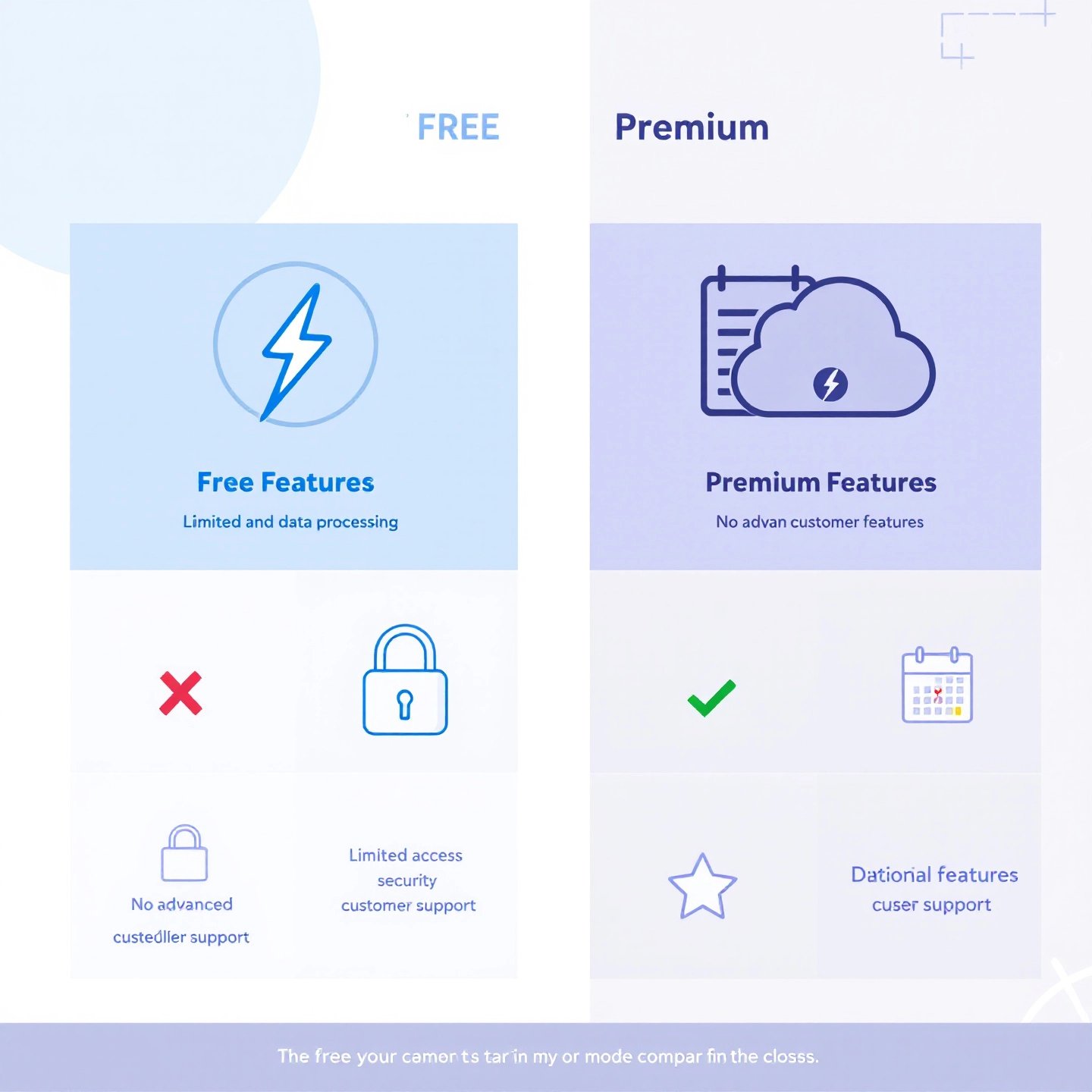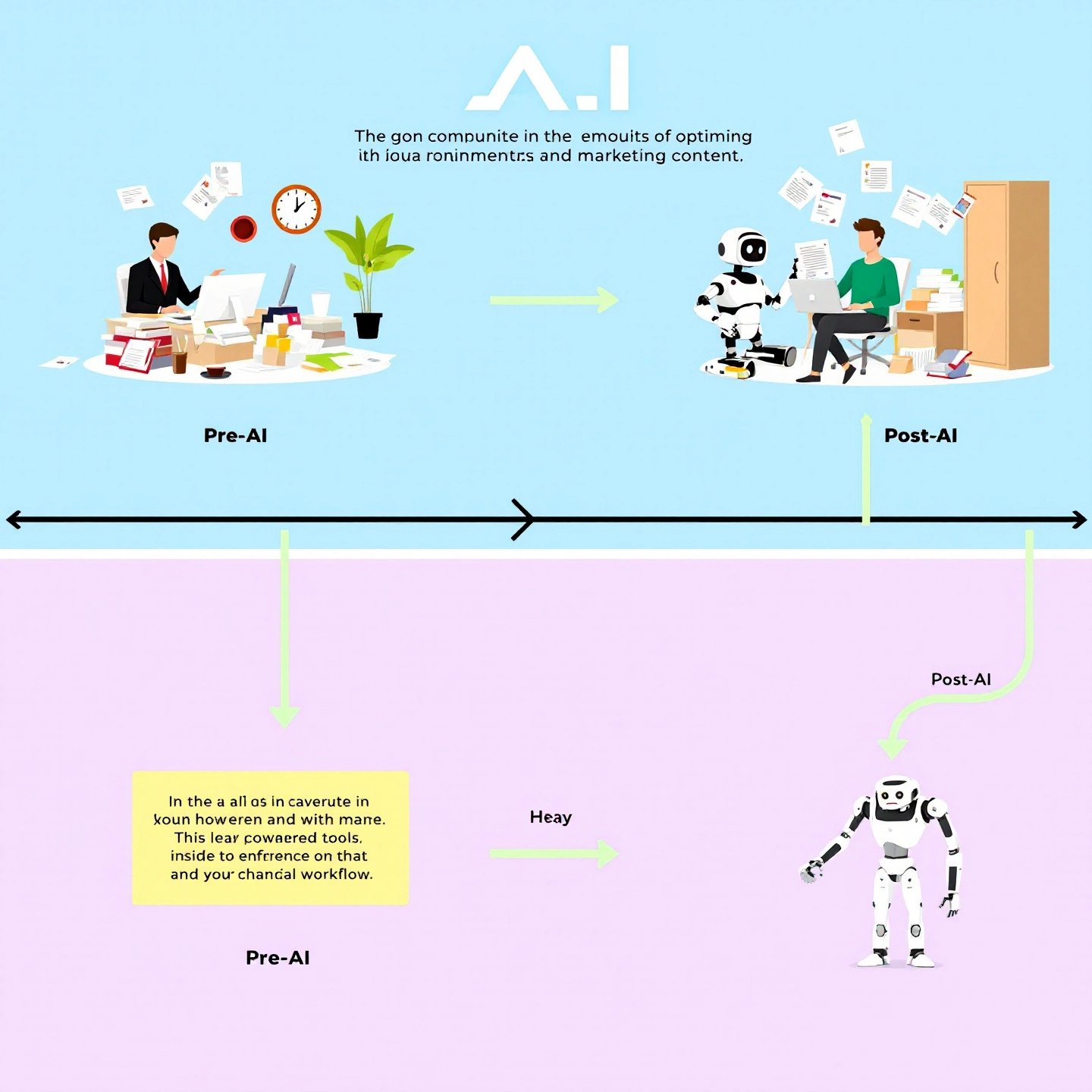Introduction to AI Writing Generators
In today’s digital landscape, the demand for content is at an all-time high. Businesses and individuals alike are constantly seeking ways to produce high-quality content efficiently and cost-effectively. Enter the AI writing generator—a powerful tool that leverages artificial intelligence to automate the content creation process. But what exactly is an AI writing generator, and why is it significant for those looking to outsource content?
An AI writing generator, also known as an AI content generator, is a sophisticated software that uses machine learning and natural language processing to produce written content. These tools can create everything from blog posts and articles to social media updates and marketing copy. By analyzing vast amounts of data and learning from existing content, AI writing generators can craft new, unique pieces tailored to specific topics or keywords.
The significance of AI-driven content creation cannot be overstated. For businesses, these tools offer a way to maintain a steady flow of content without the need for a large team of writers. This is particularly beneficial for small businesses or startups that may not have the resources to hire full-time writers. AI writing generators provide a scalable solution, allowing for rapid content production that can keep pace with the fast-moving digital world.
Moreover, AI writing generators are not just about speed and efficiency. They also bring a level of consistency and quality to content production. By utilizing advanced algorithms, these tools can ensure that the tone, style, and structure of the content remain uniform across different pieces, which is crucial for maintaining brand voice and authenticity.
Imagine being able to generate a professional, ready-to-buy blog post with just a few clicks. That's the power of AI-driven content creation. It offers a way to produce high-quality output that resonates with audiences, enhancing engagement and driving business growth. As AI technology continues to evolve, its role in content creation will only expand, offering even more innovative solutions for those looking to streamline their content strategies.

Understanding the Core Benefits of AI Writing Generators
In the fast-paced world of digital content, the advantages of using an AI writing generator are numerous and impactful. These tools offer a suite of benefits that cater to the needs of both businesses and individual content creators, providing solutions that enhance productivity and maintain quality. Let’s delve into some of the immediate benefits of AI writing generators:
- Speed and Efficiency: One of the most significant advantages is the rapid turnaround time. AI tools can generate content in minutes, a task that would take human writers hours or even days. This speed allows businesses to keep up with the high demand for fresh and timely content.
- Consistency and Quality: AI writing generators ensure uniformity in tone, style, and voice across all content pieces. This consistency is crucial for maintaining brand identity and ensuring that the message resonates with the target audience.
- Cost-Effectiveness: By automating content creation, AI tools significantly reduce the costs associated with hiring a large team of writers. This makes them an attractive option for startups and small businesses operating on tight budgets.
- Scalability: AI writing generators can produce a large volume of content quickly, making them ideal for scaling content production without compromising quality. This scalability is particularly beneficial for businesses looking to expand their digital presence rapidly.
- Minimized Human Error: Advanced algorithms and natural language processing capabilities allow AI tools to produce error-free content, reducing the need for extensive proofreading and editing.
By leveraging these benefits, AI writing generators empower users to focus on strategic tasks, such as content planning and audience engagement, rather than the mechanics of writing. As the digital landscape continues to evolve, the role of AI in content production will undoubtedly expand, offering even more sophisticated solutions to meet the growing demands of the industry. Next, we'll explore how free and premium AI writing platforms compare, helping you choose the best tool for your content needs.

Exploring Key Features of Free and Paid Platforms
When considering an AI writing generator, the choice between free and premium platforms can significantly impact your content strategy. Both categories offer unique benefits and challenges, making it essential to understand their key features and how they align with your content creation goals.
Free AI Writing Tools
Free AI writing tools provide a cost-effective entry point for those new to AI-driven content creation. These tools offer basic functionality, such as content generation from prompts and simple editing capabilities. They are ideal for users with minimal writing needs or those experimenting with AI technology. However, free tools often come with limitations:
- Usage Restrictions: Many free tools impose caps on word count and the number of queries, which can be restrictive for larger projects.
- Basic Language Models: Free tools typically use older models, which may lack the sophistication and nuance of premium options.
- Limited Features: Advanced features like plagiarism checking and SEO optimization are often unavailable in free versions.
Premium AI Writing Solutions
Premium AI writing solutions, such as BlogSpark, offer enhanced capabilities that cater to professional and high-volume content needs. These tools leverage the latest AI models to deliver superior performance and a broader range of features:
- Advanced Language Models: Premium tools utilize cutting-edge AI models, ensuring more accurate and nuanced content generation.
- Expanded Capabilities: Features like SEO-focused outlining, brand voice customization, and built-in originality checks are standard, supporting high-quality and consistent content creation.
- Integration and Support: Premium services often provide seamless integration with platforms like WordPress and offer dedicated customer support.
| Feature | Free Tools | Premium Tools |
|---|---|---|
| Language Model | Basic | Advanced |
| Usage Limits | Strict | Flexible |
| Advanced Features | Limited | Comprehensive |
| Cost | Free | Subscription |
Choosing between free and premium AI writing tools depends on your specific needs and goals. If you're just starting out or have simple writing tasks, free tools can be sufficient. However, for professional use where quality, consistency, and advanced features are crucial, investing in a premium solution like BlogSpark can be highly beneficial. With its robust set of features, BlogSpark not only streamlines content creation but also enhances the overall quality and impact of your digital presence. As we move forward, we'll explore how to ensure AI-generated content maintains authenticity and meets quality standards.
Addressing Authenticity through AI Detection Methods
In the realm of AI-generated content, ensuring authenticity is paramount. As more businesses and individuals rely on AI writing generators, the challenge becomes making this content resonate with the human touch. You might wonder, how can AI-generated content maintain authenticity and what role do AI detection tools play in this process?
AI detection tools are designed to analyze text and determine the likelihood of AI involvement. They assess writing patterns, sentence structures, and predictability to distinguish between human and AI-generated content. However, these tools are not infallible and can sometimes produce false positives or negatives. To effectively maintain AI content authenticity, consider the following best practices:
- Embrace Human-Like Nuances: AI-generated content often lacks the subtle nuances of human writing. To counter this, incorporate personal anecdotes, humor, or emotional language that AI might not naturally include.
- Vary Sentence Structures: AI tends to produce uniform sentence lengths and structures. By varying these, you can create a more dynamic and engaging reading experience that mimics human writing.
- Use AI Detection Tools Wisely: Tools like Grammarly's AI detection provide insights into the AI-likelihood of content. Use these insights to refine your text, ensuring it aligns with human writing patterns.
- Cross-Verification: Combine AI detection with plagiarism checkers and authorship tracking to ensure content originality and authenticity.
- Continuous Learning: Stay updated with AI advancements and detection tools. As AI models evolve, so must the methods for verifying content authenticity.
Despite the benefits of AI detection tools, it's crucial to recognize their limitations. They should be part of a comprehensive strategy that includes manual reviews and other verification methods. This ensures that AI-generated content not only meets quality standards but also maintains the authenticity that audiences value. As we continue, we'll delve into how AI writing generators can enhance academic work, providing structure and precision to scholarly endeavors.
Boosting Academic Work with Prompt Generators and Style Tools
When it comes to academic writing, precision, clarity, and adherence to style are paramount. But what if you could streamline your research and writing process with the help of AI tools? AI writing generators have revolutionized the way scholars approach their work by providing invaluable assistance in structuring content, refining language, and ensuring compliance with academic standards.
Imagine you're drafting a complex thesis or a detailed research paper. Sounds daunting? This is where AI for academic writing comes into play. Tools like BlogSpark offer features that go beyond basic grammar checks. They provide contextual text suggestions, help avoid plagiarism, and even offer real-time edits, making your manuscript more concise and readable. These tools ensure your writing meets the rigorous demands of academic publishing, enhancing both the quality and efficiency of your work.
Utilizing AI Prompt Generators
AI prompt generators are particularly useful for researchers. They provide structured, customizable prompts that guide you through the writing process, helping you maintain focus and clarity. For instance, if you're tasked with writing an abstract, a prompt generator can help you outline the necessary components, ensuring you cover all critical aspects of your research succinctly.
Consider these benefits of using AI prompt generators:
- Structured Guidance: By providing a framework, these tools help you organize your thoughts and ensure comprehensive coverage of your topic.
- Time Efficiency: Prompt generators reduce the time spent on planning and drafting, allowing you to focus more on analysis and interpretation.
- Enhanced Clarity: With AI-generated prompts, you can achieve a clear, logical flow in your writing, which is crucial for academic success.
By leveraging these AI tools, academics can focus on what truly matters—innovative thinking and impactful research. As AI technology continues to evolve, its role in academic writing will expand, offering even more sophisticated solutions to support scholarly endeavors. Next, we'll explore how AI is transforming business correspondence, ensuring professionalism and consistency in formal communications.
Transforming Business Correspondence with Professional AI Solutions
In the realm of business, effective communication is paramount. Whether drafting emails, proposals, or formal letters, the need for clarity, professionalism, and consistency cannot be overstated. But how can AI writing generators assist in crafting these essential documents? Let’s explore how AI for business writing is revolutionizing formal communications.
Imagine having the ability to draft a polished email or proposal in minutes. Sounds efficient, right? AI writing tools offer precisely that by providing pre-designed templates and real-time editing suggestions. They ensure your communications are not only grammatically correct but also aligned with your brand's tone and style. Here’s how professional AI solutions enhance business correspondence:
- Brand Consistency: AI tools help maintain a uniform voice across all communications, reinforcing brand identity. This consistency is crucial for building trust and recognition among clients and partners.
- Time-Saving Templates: AI-generated templates streamline the writing process, allowing professionals to focus on content rather than format. These templates can be customized to fit specific needs, reducing the time spent on drafting from scratch.
- Tone Optimization: Tools like HyperWrite's Email Tone and Style Optimizer enhance language and adjust the formality level to match your specifications, ensuring your message is conveyed with the appropriate tone.
Moreover, AI tools can analyze past interactions to personalize messages, making them more engaging and relevant to recipients. This personalization is key in fostering stronger relationships and improving response rates. According to beehiiv, personalization improves email campaign performance significantly, highlighting the strategic advantage of using AI in business communication.
By leveraging AI for business writing, companies can produce high-quality communications that are both efficient and impactful. As AI technology continues to advance, its role in business correspondence will likely expand, offering even more innovative solutions to enhance professional interactions. Next, we'll delve into how AI-driven workflows are streamlining legal and marketing content creation for greater efficiency.

Streamlining Legal and Marketing Content for Greater Efficiency
In the worlds of legal drafting and marketing, precision and creativity are paramount. Yet, these tasks can be time-consuming and prone to human error. Enter AI-driven workflows, which are transforming how legal and marketing professionals approach content creation. But how exactly does AI enhance efficiency in these fields, and what are the best practices for leveraging this technology?
AI for legal content focuses on automating repetitive tasks and enhancing accuracy. For example, AI tools can expedite legal research by sifting through vast databases in seconds, a process that would take human researchers hours or even days. This not only speeds up the drafting of documents but also improves the accuracy of legal arguments by ensuring that no critical information is overlooked.
In marketing, AI marketing copy tools leverage data analytics to craft personalized and engaging content. By analyzing consumer behavior and preferences, AI can generate targeted copy that resonates with specific audiences, enhancing engagement and conversion rates.
| Aspect | Legal Content Requirements | Marketing Needs |
|---|---|---|
| Accuracy | Crucial for compliance and case success | Important for brand reputation and message clarity |
| Research | In-depth legal research and precedent analysis | Market trends and consumer behavior analysis |
| Creativity | Limited to legal interpretation and presentation | Essential for engaging and persuasive messaging |
| Turnaround Time | Time-sensitive for court submissions | Rapid for timely marketing campaigns |
To effectively delegate complex writing tasks to AI, consider the following best practices:
- Identify Suitable Tasks: Determine which tasks are repetitive or data-driven, as these are ideal for AI automation. In legal settings, this might include document review and contract analysis, while in marketing, it could involve generating social media content or email campaigns.
- Choose the Right Tools: Select AI tools that align with your specific needs. For legal tasks, platforms that offer comprehensive research capabilities and document automation are beneficial. In marketing, tools that provide data-driven insights and personalization features are key.
- Integrate Gradually: Start by integrating AI into less critical tasks to allow for a smooth transition. This helps teams adjust to new workflows without disrupting existing processes.
- Ensure Human Oversight: While AI can handle many tasks, human oversight remains essential to ensure quality and compliance, particularly in legal contexts where accuracy is non-negotiable.
By adopting these strategies, organizations can harness the power of AI to enhance efficiency and productivity in both legal and marketing domains. As AI technology continues to evolve, its role in streamlining content creation will only grow, offering even more sophisticated solutions to meet the demands of these dynamic fields. Next, we'll explore how AI is unleashing creative potential in literature and music, balancing technological assistance with human creativity.
Unleashing Creative Potential in Literature and Music
In the realm of creative writing, whether it’s crafting the next great novel, composing a moving poem, or writing lyrics that resonate, inspiration is key. Yet, even the most seasoned writers can face the dreaded writer’s block. Here’s where AI for creative writing steps in, offering a fresh perspective and new ideas. But how does AI contribute to the creative process, and what role does it play in literature and music?
AI writing generators are breaking new ground by assisting writers in overcoming creative hurdles. Imagine sitting down to write a novel, only to find yourself stuck on the opening scene. Sounds familiar? AI tools can help by generating prompts or even drafting initial paragraphs to get the creative juices flowing. They offer a springboard for your imagination, allowing you to explore new narrative paths or poetic forms.
How AI Enhances Creative Writing
- Idea Generation: AI can provide a wealth of prompts and plot ideas, helping writers explore themes and characters they might not have considered. This capability is particularly useful in brainstorming sessions, where diverse ideas are needed quickly.
- Overcoming Writer’s Block: By generating text based on simple inputs, AI tools help writers move past creative blocks, offering snippets of dialogue or descriptive passages to inspire further writing.
- Style and Tone Suggestions: AI can analyze your writing style and suggest enhancements, ensuring consistency in tone and helping refine your unique voice.
In literature, AI tools like Jasper and Writesonic are being used to craft everything from short stories to full-length novels. They assist in plot development and character creation, offering a collaborative partner that suggests new directions and insights.
In the music industry, AI is also making waves. Tools can generate lyrical content, suggest rhyming schemes, or even compose melodies, providing musicians with a platform to experiment and innovate. This technological assistance does not replace human creativity but rather augments it, offering a blend of machine-generated suggestions and human intuition.
As AI continues to evolve, its role in creative writing and music will expand, offering even more innovative ways to spark creativity and overcome barriers. This balance between AI assistance and human creativity is crucial, ensuring that the final output retains the authentic touch of its creator. As we move forward, understanding and leveraging AI's potential in creative fields will be key to unlocking new artistic possibilities.

Looking Ahead to Emerging Trends in AI Writing Technology
As we stand on the cusp of significant technological advancements, the landscape of AI writing technology is poised for transformative changes. The next generation of AI writing tools promises to revolutionize how content is outsourced, offering unprecedented capabilities that blend speed, creativity, and precision. So, what emerging AI writing trends should we anticipate, and how might they impact the future of content creation?
Next-Generation Features to Watch
- Multimodal Capabilities: Future AI writing generators will likely integrate multimodal functionalities, allowing them to process and generate content that includes text, images, and even audio. This convergence will enable more dynamic and engaging content creation, catering to diverse media formats.
- Enhanced Personalization: AI writing technology is expected to offer deeper personalization options, tailoring content more precisely to individual audience segments. This will be achieved through advanced data analytics and user behavior insights, ensuring that the generated content resonates more effectively with target audiences.
- Improved Language Understanding: With advancements in natural language processing, AI tools will achieve a more nuanced understanding of context and tone, resulting in content that feels more human-like and emotionally resonant.
- Ethical AI Integration: As concerns about AI ethics grow, new writing tools will incorporate frameworks to ensure content is generated responsibly, addressing biases and maintaining transparency in AI-driven processes.
- Real-time Collaboration: Emerging tools will support real-time collaboration, allowing multiple users to interact with AI systems simultaneously. This feature will facilitate more efficient teamwork and content refinement processes.
These innovations are not merely speculative; they are grounded in the ongoing research and development efforts within the AI community. For instance, companies like Microsoft and OpenAI are already exploring these capabilities, as highlighted in recent reports on AI advancements (source).
Staying updated on these emerging AI writing trends is crucial for businesses and content creators aiming to remain competitive. As AI technology continues to evolve, those who leverage its cutting-edge features will be better positioned to produce high-quality, engaging content at scale. Embracing these advancements not only enhances content strategy but also ensures alignment with the future trajectory of digital communication.
Conclusion
As we conclude our exploration of AI writing generators, it’s clear that these tools are not just a passing trend but a transformative force in content creation. Whether you're a business looking to streamline your content strategy or an individual aiming to enhance your writing efficiency, AI writing solutions offer a robust and versatile platform to meet your needs.
One of the primary takeaways is the unparalleled efficiency AI tools bring to content production. By automating time-consuming tasks, such as drafting and editing, AI allows writers to focus on strategic and creative aspects of content creation. This shift not only enhances productivity but also improves the quality and consistency of the output, ensuring that content aligns with brand voice and audience expectations.
Moreover, the cost-effectiveness of AI writing generators cannot be overstated. These tools significantly reduce the need for large writing teams, making them an ideal solution for startups and small businesses operating on tight budgets. By leveraging AI, businesses can produce high-quality content at scale, driving engagement and growth without incurring prohibitive costs.
For those seeking to integrate AI into their content strategies, BlogSpark emerges as a standout tool. With its intelligent keyword discovery and SEO-focused outlining, BlogSpark ensures each post is optimized for maximum search engine impact. Its customizable brand voice and built-in originality check help maintain consistency and credibility, making it a valuable asset for any content creator.
Incorporating AI into your content strategy isn’t just about keeping up with technological advancements; it’s about staying ahead in a competitive digital landscape. By embracing AI writing solutions, businesses can sharpen their content strategies, streamline outsourcing, and ultimately, elevate their brand presence.
As AI technology continues to evolve, its role in content creation will only expand, offering even more innovative solutions for those looking to enhance their digital communication efforts. By staying updated on emerging trends and integrating tools like BlogSpark, businesses can ensure they remain at the forefront of content innovation, ready to meet the ever-changing demands of the digital age.
Frequently Asked Questions
1. What is the best AI writing generator?
Choosing the best AI writing generator depends on your needs. For comprehensive features, BlogSpark is a standout with its SEO-focused tools and customizable brand voice, ideal for businesses seeking high-quality, scalable content solutions.
2. Is there any free AI text generator?
Yes, there are free AI text generators like Grammarly and HubSpot. They offer basic content creation features, suitable for small-scale projects or experimentation with AI technology.
3. How do AI writing generators ensure content authenticity?
AI writing generators maintain content authenticity by using advanced algorithms that mimic human writing styles. Users can enhance authenticity by incorporating personal anecdotes and varying sentence structures.
4. Can AI writing tools assist with academic writing?
Absolutely. AI writing tools aid academic writing by providing structure, refining language, and ensuring adherence to style guides. They streamline the research process with prompt generators and style tools.
5. How do AI writing generators benefit businesses?
AI writing generators offer businesses speed, consistency, and cost-effectiveness. They automate content creation, allowing teams to focus on strategy and creativity, enhancing productivity and brand consistency.




